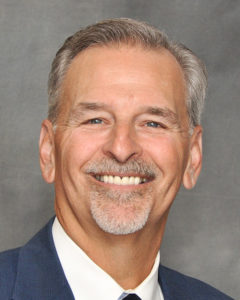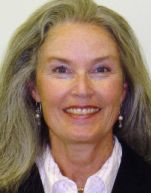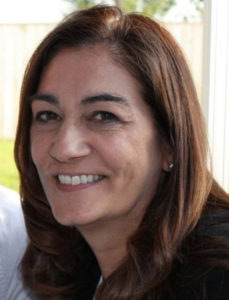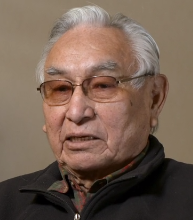← Back to Conferences/Professional Learning
CASS / ASBOA Summer Learning Conference
Details
For your convenience, you can view the schedule here: Program at a Glance
All CASS and ASBOA members are invited to participate in the first province-wide Summer Learning Conference, scheduled for August 14 (evening) – 17, 2018 at the Pomeroy Kananaskis Mountain Lodge (formerly known as the Delta Hotels Kananaskis Lodge). The Conference will provide an opportunity for professional learning during a family-friendly event in beautiful Kananaskis Country.
The CASS/ASBOA Summer Learning Conference will use the Learning Module approach to design learning.
Learning Modules are designed to deepen and apply system leaders professional practice with opportunities to examine Alberta context through a community of inquiry approach based on research. Learning modules begin with a focus on personal capacity leading to the valuable role system leaders play in supporting quality school leadership and teaching to create optimum learning for all students in Alberta.
This professional learning design is separate from the Leadership Certification work the Ministry and selected Post Secondaries Institutions are currently building.
CASS professional learning modules provide an opportunity to apply learning related to the Superintendent Leadership Quality Standard through one specific competency or on several competencies connected by a topic (e.g. Executive Coaching). Learning modules provide an opportunity for ASBOA member’s to deepen learning based on members needs and professional practice standards identified by ASBOA.
Learning module descriptions are available via the tab “Learning Modules” and describe the following modules:
- CASS Modules:
- Building Effective Relationships
- Visionary Leadership
- Leading Learning
- Ensuring First Nations, Métis and Inuit Education for All Students
- Supporting Effective Governance
- Introduction to Executive Coaching
- ASBOA Module
- Ethical Leadership in Education
Additional Information
Recreational Activities
A list of activities that delegates, and family members may participate in the afternoon of August 16 is available via the hotel website on under the “explore” tab. These include golf, canoeing, guided hiking, cycling, horseback riding, and rock climbing.
Learning Module Descriptions
Click on one of the following Learning Module Descriptions to see more information.
This course is 11 hours in duration over three days. It is comprised of two parts. Part I provides the theoretical underpinnings of all ethical action. Part II is focused upon the application of ethical analysis to ethical quandaries faced by school business officials and school superintendents. This course uses Christopher Hodgkinson’s (1991) book, Educational Leadership: The Moral Art; the College of Alberta School Superintendents Code of Professional Conduct, as well as the ASBOA Code of Ethics and other relevant professional Codes of Ethics.
Module Specific Learning Outcomes
Module Overview
Learn the essentials of non-directive coaching with ICF Master Certified Coach, Marj Busse. In this highly interactive, experiential based learning program, Marj will guide participants though the core pillars of Essential Impact’s International award winning Excelerator Coaching Model. Participants will have the opportunity to witness non-directive coaching demonstrations, practice coaching skills and debrief their experiences, accessing the collective knowledge of the group. The Excelerator Coaching Program is renowned for creating seismic shifts in culture by driving accountability, building positive internal team dynamics and fostering meaningful connections in the workplace. Come and enjoy a brief taste of the ICF Prism award winning program that companies such as Rogers, Joey Restaurant Group, TD Bank, Maple Leaf Sports and Entertainment and many others are proud to continuously champion as being a critical component of their high-performing organizational cultures.
Module Specific Learning Outcomes
1. Learn the benefits of non-directive coaching and how it can be immediately implemented in the workplace.
2. Experience non-directive coaching through practical, hands-on learning activities as well as facilitated debriefing sessions.
3. Gain an understanding of the Excelerator Coaching Model’s 4 key principles: Engage, Enlighten, Empower, Excel.
Module Overview
Session A: Engage – To establish the coachee’s understanding of coaching and readiness to begin coaching.
Session B: Enlighten – To shed light on a situation for the purpose of bringing focus to the coachee’s own thoughts.
Session C: Empower – To assist another to access self-generating power through a respectful, trustworthy relationship.
Session D: Excel – To achieve results beyond what was imaginable at the outset.
Follow-up Session E: – To re-visit the 4 key principles and discuss participant experiences with non-directive coaching.
Competency 1: A superintendent establishes a welcoming, caring, respectful, and safe learning environment by building positive and productive relationships with members of the school community and the local community.
Module Specific Learning Outcomes
Participants will develop and apply research-informed strategies to
- Build positive and learning-focused relationships with members of the jurisdiction, school and local communities.
- Strengthen professional relationships within and across the system and with key stakeholders.
- Facilitate meaningful participation of members of the jurisdiction, school, and local communities in decision-making.
Module Overview
Session A: Relationships Connected to System Priorities
Session B: Towards Learning-Oriented Relationships
Session C: Developing Relational Trust
Session D: Designing an Action Plan
Follow-up Session E: Peer Feedback on Evidence of the Action Plan’s Impact on Effective Relationships
Competency 3: A superintendent engages with the school community in implementing a vision of a preferred future for student success, based on common values and beliefs.
Module Specific Learning Outcomes
Participants will develop and apply research-informed strategies to
- Ensure the vision is informed by research on effective learning, teaching and leadership.
- Promote innovation and continuous improvement by building structures and developing strategies to support staff in professional collaboration.
- Promote in the school community a common understanding of and support for the school authority’s goals, priorities, and strategic initiatives.
- Ensure that the vision expressed in the school authority’s education plan is responsive to the ongoing review of the school authority’s achievements, meets all requirements identified in provincial legislation, and incorporates the school community’s perspectives.
Module Overview
Session A: Espoused Vision
Session B: Assessing Organizational Statements
Session C: Critical Indicators
Session D: Designing an Action Plan
Follow-up Session E: Peer Feedback on the Evidence of the Action Plan’s Impact on Visionary Leadership
Competency 4: A superintendent establishes and sustains a learning culture in the school community that promotes ongoing critical reflection on practice, shared responsibility for student success, and continuous improvement.
Module Specific Learning Outcomes
Participants will develop and apply research-informed strategies to:
- Enact system-based approaches to leading learning through collaborative cultures focused on optimal learning by all students.
- Scaffold from their current leadership practices to more fully utilize shared, distributed, and collective approaches to overall instructional leadership that deepen and widen impact.
- Build the capacities of principals to provide overall instructional leadership through effective support, supervision, and evaluation.
- Provide systemic, ongoing professional learning based on research-informed principles of human learning, effective teaching, and quality leadership to build the capacity of all members of the school community to foster student success.
Module Overview
Session A: Focusing on Optimal Learning for All Leaders, Teachers, and Students
Session B: Sustaining a Collaborative and Coherent Learning Organization
Session C: Scaffolding Overall Instructional Leadership
Session D: Designing an Action plan
Follow-up Session E: Peer Feedback on the Evidence of the Action Plan’s Impact on Leading Learning
Competency 5: A superintendent establishes the structures and provides the resources necessary for the school community to acquire and apply foundational knowledge about First Nations, Métis, and Inuit for the benefit for all students.
Module Specific Learning Outcomes
Participants will develop and apply research-informed strategies to:
- create the conditions, supports, and opportunities to sponsor greater awareness and understanding of how the relationships between Indigenous and non-Indigenous people originated and evolved to present day.
- engage with and collaborate with neighbouring First Nations and Metis leaders, organizations, and communities to optimize learning success and development of First Nations, Metis, Inuit, and all other students.
- draw from the leadership, wisdom, expertise, and knowledge of First Nations, Metis and Inuit peoples, educators, and Elders in building capacity, awareness, and understanding of Indigenous cultures.
Module Overview
Session A: An Inclusive Vision of Foundational Knowledge and Relationships
Session B: Respectful Connections with Neighbouring First Nations and Metis
Session C: Assessing Knowledge, Capacities, Resources, and Structures
Session D: Designing an Action Plan
Follow-up Session Peer Feedback on Evidence of the Action Plan’s Impact on Establishing Structures and Resources for the School Community to Acquire and Apply Foundational Knowledge about First Nations, Métis and Inuit for the Benefit of All Students.
Competency 7: A superintendent of schools, as referred to in the School Act, as chief executive officer of the board and chief education officer of the school authority, provides the board with information, advice, and support required for the fulfillment of its governance role, and reports to the Minister on all matters required of the superintendent as identified in the School Act and other provincial legislation.
Module Specific Learning Outcomes
Participants in the Supporting Effective Governance Module will develop and apply strategies to
- work within a contextually appropriate policy governance model to establish and sustain a productive working relationship with the board, based on mutual trust, respect, and integrity.
- engage in ongoing education for board members and jurisdiction leaders to foster collaboration, reciprocity, and interdependency among professionals, trustees, and the wider community.
- support trustee participation in assessing community values and interests and mobilizing parents and the wider community in supporting the school authority’s education plan to optimize learning for all students.
Module Overview
Session A: Do School Boards Matter?
Session B: Effective Governance and Superintendent Leadership
Session C: Fostering Collaboration among Professionals, Trustees, and the Wider Community
Session D: Designing an Action Plan
Follow-up Session: Peer Feedback on Evidence of the Action Plan’s Impact on Supporting Effective Governance
Learning Modules are designed to deepen and apply system leaders professional practice with opportunities to examine Alberta context through a community of inquiry approach based on research. Learning modules begin with a focus on personal capacity leading to the valuable role system leaders play in supporting quality school leadership and teaching to create optimum learning for all students in Alberta.
Professional learning modules are informed by Alberta, Canadian, and international research on high performing school districts. Through facilitated critical examination of their individual and collective leadership practices in collaboration with other system educational leaders, participants will co-construct and share strategies for enacting the specific SLQS Competency addressed in a 15-hour professional learning module.
Learner Commitment
This form of professional learning requires a high level of learner commitment. Participants will be asked to draw upon their professional experiences, analyze case scenarios, and collaboratively examine research to design action plans that address self-identified problems of system leadership practice. In addition to the Summer Conference, required pre-reading and an overview will be provided in a one-hour webinar or teleconference in June. A culminating follow-up session will take place during the CASS Fall Pre-Conference. In this final session, participants will share evidence of their action plan’s impact and generate ideas for next steps with a small group of their participating peers.
Who Should Attend?
Superintendent and system leaders interested in building their own and as a result others capacity. In-depth learning is intended to change practice and positively impact student learning and school authority success.
Learning modules are focused on individual capacity building. A dedicated time for system action planning will be provided on Friday morning in addition to. Plan to attend based on building your own capacity knowing that your learning will contribute to system success.
Participants in the CASS Professional Learning Modules will
- Enhance their capacity to draw upon research-informed, interrelated sets of knowledge, skills, and attitudes (competencies) and apply these to their particular leadership contexts in order to support quality leadership, teaching and optimum learning.
- Contribute to the career-long improvement of their professional leadership through enhanced understanding of evidence-informed self-reflection, collaborative inquiry, complex problem solving, and job-embedded application of learning.
- Strengthen their abilities to develop and sustain inclusive environments in which diversity is embraced and all members of the school community are welcomed, safe, cared for, and respected.
Reading & Resource Materials
Reading:
Dancing on the Narrow Ridge: Superintendents’ Ethical Decision Making by J. Kent Donlevy & Keith D. Walker
“This monograph concerns ethical decision making in the public service, with particular attention to examples from educational administration and leadership. Superintendents were interviewed to provide examples of various frames and grounds for ethical decision making.”
Educational Leadership: The Moral Art by Christopher Hodgkinson; Forward by Thomas B. Greenfield
“This book shows that educational leadership is not a science but a philosophical activity, a moral art. The central problem of administration is defined as value conflict, and Hodgkinson presents an analysis and theory of value and of conflict resolution.
Also, please be sure to review the CASS Code of Professional Conduct as well as the ASBOA Code of Ethics and other relevant professional Codes of Ethics.
Under Development
Speakers
Gary Strother (Visionary Leadership)

Gary Strother has been the chief superintendent of the Calgary Catholic School District since 2012. He leads the largest Catholic school district in Alberta, serving more than 55,000 students in 112 schools in Calgary, Airdrie, Cochrane, Chestermere and Rocky View County. Strother moved from Montreal to Calgary in 1983 when he began working with the district as a teacher, then served as a vice-principal, principal and area superintendent. Strother is committed to academic success and doing what is best for students. He believes in supporting each and every employee in the district to inspire excellence in students, which has helped make the district one of the top performers in the province. He has built a culture of shared responsibility, transparency and collaboration. Strother sits on various local and provincial boards, including the Board of Directors for the Sheldon Kennedy Child Advocacy Centre, where he recently helped unveil a toolkit to better equip teachers to identify and report child abuse.
Barry Litun (Visionary Leadership)
 Barry Litun has been the Executive Director for the College of Alberta School Superintendents since 2013. Prior to that he was Superintendent for Lethbridge School District.
Barry Litun has been the Executive Director for the College of Alberta School Superintendents since 2013. Prior to that he was Superintendent for Lethbridge School District.
Barry began his career in education as a physical education and math teacher in Lamont, AB. His first principal’s position was in Whitecourt, AB. He moved to Red Deer where he served as principal of Lindsay Thurber Comprehensive High School, and as Deputy Superintendent before moving to Lethbridge.
Barry is married to Gail, and they have two sons: Justin (Kealy) in Edmonton and Adam (Erin) in Houston. Justin and Kealy are the parents to Noah & Everett, Barry & Gail’s two grandchildren.
Dr. Del Litke (Building Effective Relationships)

In his 30+ years in education, Dr. Del Litke has experience teaching, in school-based administrative and at the division office level. Following his career as a school-based administrator, Del served for 12 years on the superintendency team in Wolf Creek Public Schools. Del has presented at a number of major conferences including the Alberta Middle School Association Conference, the Alberta Beginning Teachers’ Conference, CASS/Alberta Education Curriculum Symposium, the Central Alberta Teachers’ Convention, Leading and Learning Conference, and the Greater Edmonton Teachers’ Convention. He has published articles for Educational Leadership, Phi Delta Kappa, Alberta Journal of Educational Research and Journal of Distance Education. He has also served as an instructor for the University of Alberta, University of Lethbridge, Gonzaga University and Red Deer College. From 2010-2014 Del was the Deputy Superintendent of schools for Foothills School Division. Currently, Del maintains his passion for education serving as the Director of Leadership Learning for the College of Alberta School Superintendents. In 2017, Del broadened his experience with a short engagement in China as a principal of an Alberta accredited high school.
Marj Busse (Introduction to Executive Coaching)
With many decades of business experience and 20 years as an executive business coach, Marjorie Busse has expertise in developing successful leaders. For the last 18 years, she has been a lead faculty member in the ICF-accredited Certified Executive Coaching program at Royal Roads University. She is a master facilitator of the Essential Impact’s Excelerator Coaching™ program, Legacy Leadership® program and the Strength Deployment Inventory® program. Busse creates a highly interactive and engaging learning environment getting clients involved from the get-go. It has been said that she can be “wildly entertaining,” she connects easily with people and creates a safe space to explore the world(s) of coaching. Marj is a principal partner with Essential Impact.
Danielle Hockley (Introduction to Executive Coaching)

Danielle brings a complex energy and excitement to coaching. Her process and outcome oriented thinking helps leaders develop deep insights and solid action plans. Danielle is a Certified Leadership Coach (CLC) and is International Coach Federation (ICF) accredited as an Associate Certified Coach (ACC). Danielle is also a Mental Performance Trainer and works from a strengths based approach to leadership development.
Danielle has coached leaders in a wide variety of sectors ranging from Education and Health Care to Construction to Marketing and Entrepreneurs, Not For Profit and Small Business Leaders. Her clients are primarily North American based industries in Canada and the US.
Danielle is an associate Coach and Facilitator with Essential Impact and has worked extensively in Essential Impacts Social Enterprise offerings of their accredited training for Charitable Leaders.
Curtis Madaski (Introduction to Executive Coaching)

Mastering the coaching summary is an inherent strength, as are Curtis’ questioning, active listening and ‘warmly’ challenging approaches with clients, teams, colleagues and even family members. Engaging in growth and learning conversations, Curtis directs clients to focus on defining, sharpening and implementing goals. Curtis is very good at holding you accountable.
Working in the commercial and public transportation industry for the past 15 years has helped him appreciate the pressures and rewards of leadership. His reputation as an exceptional coach, effective trainer and developer of team building programs is well-known and he notes that it is the satisfying work relationships and client growth in organizations that inspire him.
He is a Certified Executive Coach accredited through the Royal Roads University Executive Coaching Program and a member of the International Coach Federation.
Curtis enjoys family gatherings – big and loud and active. Recognizing that sports provide the opportunity to rejuvenate mentally, set goals and prepare physically – his is an energetic young family!
Dr. Jacqueline Ottmann (Ensuring First Nations, Métis and Inuit Education for All)

Dr. Jacqueline Ottmann is Anishinaabe (Saulteaux), former elementary and high school teacher and principal. She was at the University of Calgary for 13 years where her roles included Coordinator of the First Nations, Métis, Inuit undergraduate teacher education program and Director of Indigenous Education Initiatives within the Werklund School of Education. She also co-chaired the Werklund School of Education Indigenous Strategy, and alongside the Provost, the university-wide Indigenous Strategy. Jacqueline recently became Professor and Vice-Provost Indigenous Engagement at the University of Saskatchewan.
Ottmann has been recognized as an international researcher, advocate, and change-maker whose purpose is to transform practices inclusive of Indigenous leadership, methodologies and pedagogies. Jacqueline is driven to create schools and communities that foster a deeper sense of belonging and appreciation for Indigenous peoples – their histories, stories, ways of knowing and being.
Elizabeth Gouthro (Ensuring First Nations, Métis and Inuit Education for All)

Elizabeth Gouthro is currently a CASS director, of Leadership Learning. Her major area of responsibility is in the area of Indigenous education.
Prior to joining CASS, in April of 2016, Elizabeth was an educator with the Calgary Board of Education (CBE) for forty-three years. in a variety of school and system leadership roles. She has served as Director, of Instructional Services, (Special Education, English Language learning, psychology, Early learning, Aboriginal Education, Outreach., curriculum, Chinook Learning Services). Prior to this, she served as Director for Diversity 2007 where she has responsibility for providing culturally and linguistically services and support to the CBE. Liz has also served in numerous other leadership positions including Area Director, Principal, assistant and vice principal and teacher k-12 and adult education.
Elizabeth has also been actively involved in her professional organizations, at the local and provincial level for the ATA and CASS. She has served CASS in a variety of positions as her CASS zone treasurer, secretary, chair and metro director for 16 years. She also has served on many Alberta Education committees throughout her career.
Elizabeth’s academic credentials include Doctoral Studies – Educational Leadership and a Master of Education, Human Resources and Organizational Behavior from the University of Calgary; a Bachelor of Education Degree in Secondary Education, Math and Science from Acadia University; a Master of Science Degree in Endocrinology, Dalhousie University; and a Bachelor of Science Degree in Biology and English, St. Francis Xavier University.
She was the proud 2015 recipient of the national Indspire Guiding the Journey Indigenous Educator Award.
Sykes Powderface – Nakoda (Ensuring First Nations, Métis and Inuit Education for All)
Sykes Powderface is from the Stoney Nakoda Nation in Morley, Alberta. He attended a residential school at Morley and moved to Mount Royal College. He majored in Business and Communications and graduated from Coop College Saskatoon. He briefly studied Criminal Law at the University of Alberta. Due to a conflict with Aboriginal Law he withdrew. He has researched and studied indigenous, Aboriginal and Treaty Rights for many years.
Sykes served as Treaty 7 Vice President of the Indian Association of Alberta for six separate one-year terms from 1966 to 1990. In 1979 he was elected Vice President of the Nation Indian Brotherhood (now AFN) for a two year term and appointed by the Chiefs Constitution Committee as lead negotiator on the Canada Constitution. He remained in Ottawa as parliamentary liaison for Alberta Chiefs till 1986. He then returned home to work for the 1988 Calgary Winter Olympics for recognition of Treaty 7 First Nations as the original people of Calgary and area. He has always been working for recognition of and adherence to Aboriginal and Treaty Rights.
His work experience includes administrative duties in various capacities with the Stoney Nakoda Nation, federal and provincial governments. Recently he served a two year term on the Alberta Child and Family Services Appeal Panel hearing disputed cases for resolution. He has also done a bit of movie work from 1949 to 2010 as a stunt man to performer. He now has his own consulting services in treaties and the Canada Constitution, traditional cultural teachings and policy analysis. His work continues to bring awareness of who the aboriginal peoples are to the non-aboriginal peoples. His retirement plans included raising quarter horse paints, at 84 still trains horses to continue to occupy his time as a hobby. He loves to golf and working with indigenous young people to help them find their identity.
 Dr. Kent Donlevy (Ethical Leadership in Education)
Dr. Kent Donlevy (Ethical Leadership in Education)
Dr. Donlevy is an Associate Professor and former Associate Dean of the Graduate Division of Educational Research in the Werklund School of Education at the University of Calgary. He is the Chair of the Research Ethics Appeal Board and the Grievance Advisor for the Faculty Association at that University. He teaches ethics and law, is an annual lecturer in the civil litigation course in the Faculty of Law at the University of Alberta, as well as a frequently invited lecturer and debater at the Centre for Constitutional Studies in that Faculty. He has recently presented at the Legal Education Society of Alberta. He has a B.A., B.Ed., M.Ed., Ph.D. (Educational Administration), and J.D. (University of Saskatchewan).
He has been a K-12 teacher in Saskatchewan and Alberta, a school principal, and a negotiator for the Saskatchewan Teachers’ Federation and the Alberta Teachers’ Association. He has published over 50 peer-reviewed articles in various jurisdictions (Canada, the United States, the United Kingdom, and Australia), as well as two books on ethics, Working Through Ethics in Education and Leadership. and Dancing on the Narrow Ridge: Superintendents’ Ethical Decision-Making. Kent has co-authored the Guides to Alberta School Law, Saskatchewan School Law, Ontario School Law, and is currently completing, with colleagues, the Guide to PEI School Law. His most recent publication is a peer-reviewed article, A Community’s Right to Freedom of Religion: Loyola High School v. Quebec, in the Supreme Court Law Review.
He has been a member of the Saskatchewan Law Society since 1985 and, many years ago, litigated cases in provincial court (Sask.), the Court of Queen’s Bench (Sask.), and the Supreme Court of Canada. He is qualified at the Alberta Court of Queen’s Bench as an expert witness involving educational law in both constitutional and tortious matters.
 Roger Nippard (Supporting Effective Governance)
Roger Nippard (Supporting Effective Governance)
Roger Nippard has served as the Superintendent/CEO of two Alberta school jursdictions over the past eleven years. In 2014 he moved to Calgary taking on that role with Foundations for the Future Charter Academy, Alberta’s largest public charter school. Originally from Newfoundland and Labrador his initial experience at the governance table came through being appointed as an ex-officio member of the school board representing staff and administration. His governance perspective also includes his work in both provinces in positions such as District Partnerships Facilitator, Assistant Superintendent – Programs, Area Assistant Superintendent, Assistant Superintendent – Human Resources and Deputy Superintendent.
Mr. Nippard holds Bachelor of Arts and Bachelor of Education degrees from Memorial University and a Master’s of Education degree, in Educational Counselling, from the University of Ottawa. He is currently pursuing his PhD in Human Resource Development at Burapha University. He has served as President of both CASS and CASSA presenting at numerous national and international conferences. A graduate of the National Staff Development Council Academy he has also worked for Royal Roads University as an Associate Professor in their Master’s of Administration and Leadership Training program.
Roger and his wife Marilyn have three children and three grandchildren all of whom reside in Calgary.
Chris Smeaton (Leading Learning)

Chris is entering his 10th year as Superintendent of Schools for Holy Spirit Catholic School Division and 16th with the Division. During his 17 years of central office administration, Chris’ diverse educational background has included portfolios related to human resources, curriculum and instruction and he has also served as an AISI lead. Through his many experiences and working with exceptional colleagues he has developed an innovative leadership style that encourages staff to take risks, in order to rethink and improve the current education system.
He continues to nurture his own professional growth and the growth of others by enriching his personal learning network on Twitter, as well as teaching courses for Gonzaga University’s Masters in Educational Leadership Program.
Chris has been married to Donna for 35 years. Their family includes son Jordan, daughter Jamieson, son-in-law Darren, grandson Carter, and a brand new granddaughter named Emerson.
Lorelie Lenaour (Leading Learning)

Lorelie Lenaour serves as the Director of Learning for Holy Spirit Catholic Schools. In this role, she provides leadership in curriculum, assessment, educational technology, and professional learning. As a lead learner, Lorelie plans for and provides professional learning opportunities for all staff through a variety of activities throughout the school year. With the philosophy that adults need to experience learning in new ways in order to build efficacy to teach differently, she aims to provide meaningful experiences that deeply engage learners in new ways of thinking and doing.
Lorelie was a classroom teacher for 25 years and has also served as a school based Associate Principal and Division Principal for Curriculum and AISI. She has a Master of Education and Bachelor of Education Degree from the University of Lethbridge.
Lorelie has recently become a certified presenter and trainer for Concept-Based Curriculum and Instruction by H. Lynn Erickson.
![]()
| Goal: |
CASS and ASBOA members will have the opportunity to complete a professional learning module, to support the work they do as System Leaders. CASS professional learning goal for 2018-2019: Deepening the understanding and applying the learning to further a commitment to action and support implementation of the professional practice standard(s). |
|---|---|
| Date(s): |
August 14 (evening) – 17, 2018 |
| Location: |
Pomeroy Kananaskis Mountain Lodge (formerly Delta Hotels Kananaskis Lodge) – SOLD OUT A link to reserve guest rooms for the shoulder dates is:
A link to reserve guest rooms for the Conference dates is: Book your group rate for 2018 CASS / ASBOA Summer Learning Conference |


